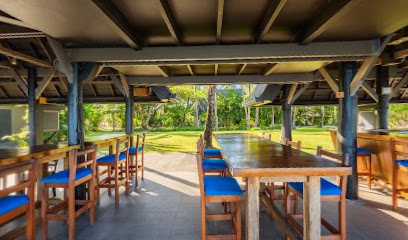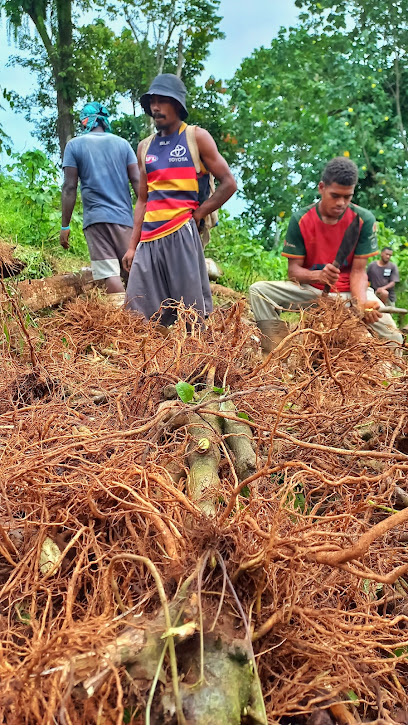
Labasa: The Heartbeat of Vanua Levu
Labasa, located on Fiji's second largest island, Vanua Levu, offers a unique blend of cultural richness and natural beauty that is often overlooked by tourists. Known for its sugar cane fields and vibrant local markets, Labasa presents a different side of Fiji, away from the bustling resorts and crowded beaches of Viti Levu. The town is a melting pot of cultures, with a significant Indian influence evident in its cuisine, festivals, and daily life. One of the highlights of Labasa is the bustling Labasa Market, a must-visit for fresh produce, handicrafts, and a taste of local life. The market is a sensory delight, with the aroma of spices mingling with the vibrant colors of tropical fruits and vegetables. Nearby, the Labasa Sugar Mill stands as a testament to the town's historical and economic significance, and tours are available for those interested in Fiji's sugar industry. For nature lovers, the surrounding countryside offers lush landscapes and opportunities for exploration. The Wasavulu Archaeological Site, just a short drive from Labasa, is home to ancient Fijian rock art and burial sites, providing a glimpse into the island's past. Additionally, the picturesque Korotari Hot Springs offer a relaxing and rejuvenating experience amidst nature. Labasa also serves as a gateway to some of Vanua Levu's most stunning natural attractions. Take a day trip to the pristine beaches of Savusavu or explore the hidden waterfalls and rainforests of the island's interior. Whether you're looking for cultural immersion or natural wonders, Labasa has something to offer every traveler.
Local tips in Labasa
- Visit the Labasa Market early in the morning for the freshest produce and the most vibrant atmosphere.
- Carry cash, as many local vendors and smaller establishments may not accept credit cards.
- Respect local customs and dress modestly, especially when visiting villages and religious sites.
- Hire a local guide for a richer experience when visiting historical and archaeological sites.
- Plan for a day trip to Savusavu to enjoy its beautiful beaches and natural hot springs.
When is the best time to go to Labasa?
Unmissable attractions to see
Port Denarau Marina
Fiji's premier marina: your gateway to island hopping, dining, shopping, and unforgettable adventures in the Mamanuca and Yasawa Islands.
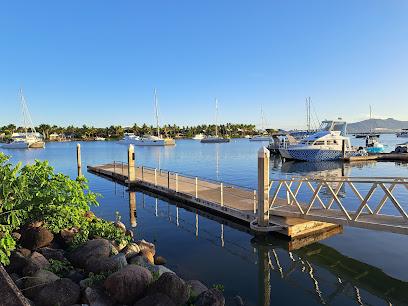
Malamala Beach Club
Experience the world's first island beach club, just a short boat ride from Denarau. Relax, play, and indulge in paradise.
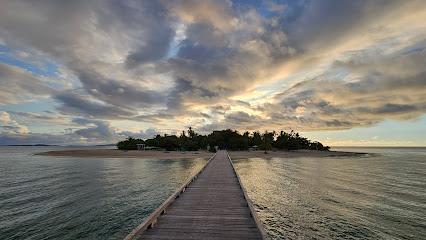
Sri Siva Subramaniya Swami Temple
Discover the largest Hindu temple in the Southern Hemisphere, a vibrant masterpiece of Dravidian architecture in the heart of Nadi, Fiji.
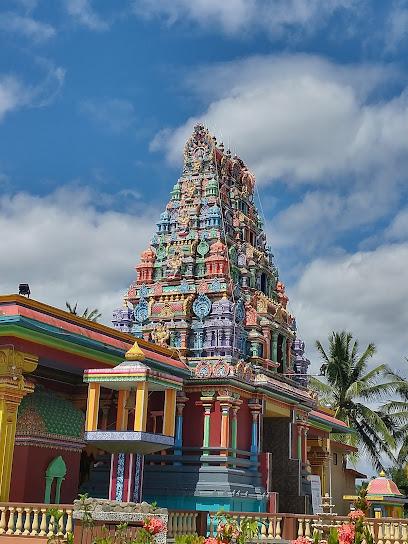
Garden of the Sleeping Giant
Discover a tranquil paradise of orchids and lush landscapes at the Garden of the Sleeping Giant, a serene escape in the heart of Fiji's natural beauty.
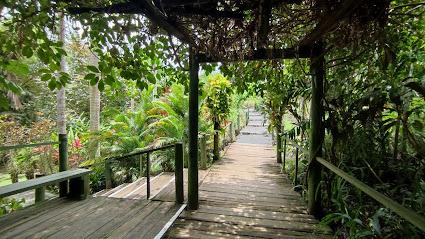
South Sea Cruises
Your gateway to Fiji's stunning Mamanuca and Yasawa Islands, offering unforgettable day trips and seamless resort transfers from Port Denarau.
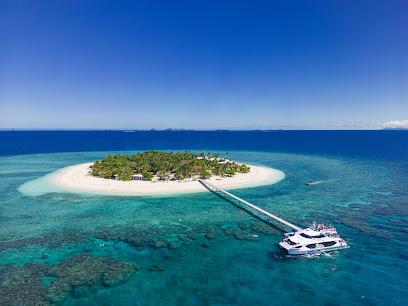
Vuda Marina
Explore Fiji's history and beauty at Vuda Marina: a modern gateway to the Mamanuca & Yasawa Islands, steeped in ancient legend.
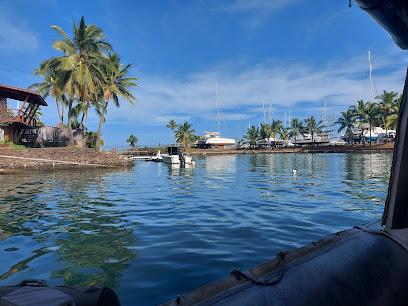
Big Bula Waterpark
Denarau Island's ultimate water adventure: slides, splashes, and endless fun for the whole family at Big Bula Waterpark!
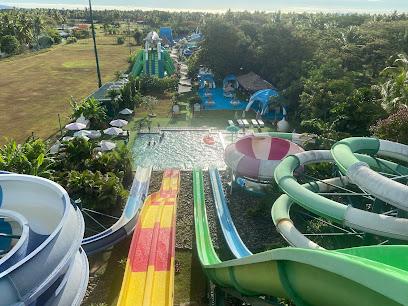
Sabeto Hot Spring Mud Pool and Tours
Rejuvenate your skin and relax your body in the therapeutic volcanic mud and hot springs of Sabeto, Fiji. A natural spa experience!
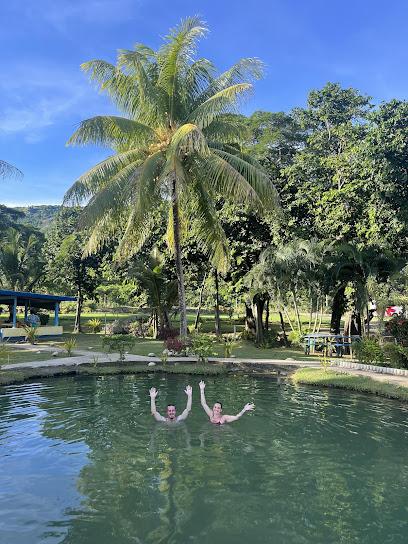
Koroyanitu National Park
Discover Fiji's hidden gem: Hike lush trails, experience vibrant culture, and witness breathtaking views at Koroyanitu National Heritage Park.
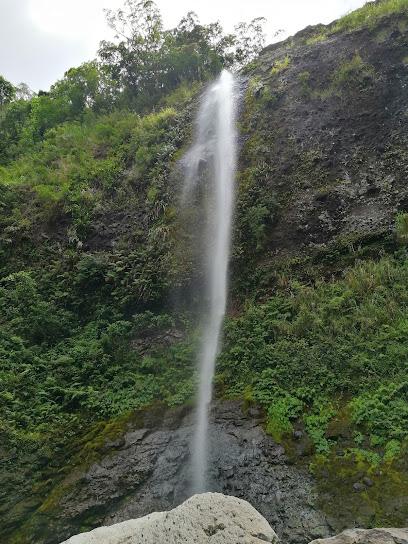
Captain Cook Cruises Fiji
Fiji's premier marina and gateway to the Mamanuca and Yasawa Islands, offering shopping, dining, and cultural experiences.
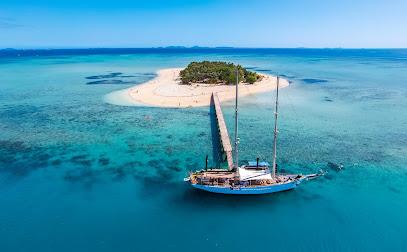
Fiji Culture Village
Experience Fiji's vibrant culture: traditional dances, crafts, and cuisine await at the Fiji Culture Village in Nadi.
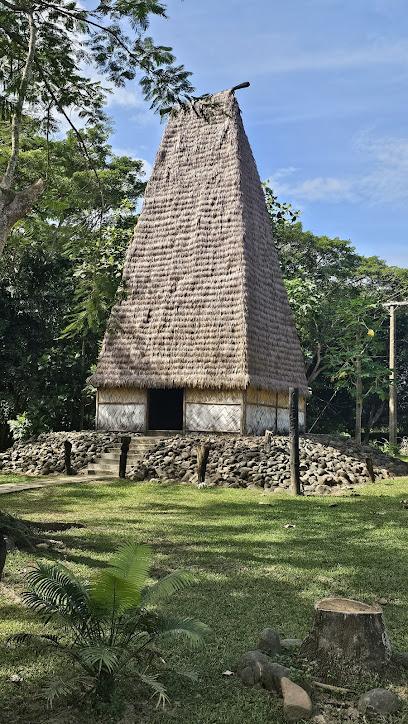
Sigatoka River Safari
Discover Fiji's heart and soul with an award-winning river safari, blending adventure, culture, and breathtaking scenery.
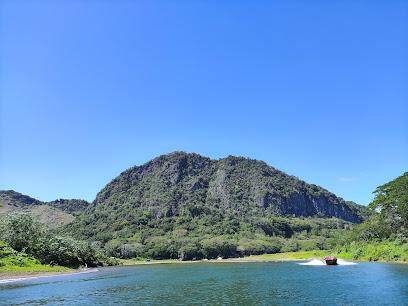
Valentine Tours Fiji
Discover the beauty of Fiji with Valentine Tours, your trusted partner for unforgettable travel experiences and seamless transportation in paradise.
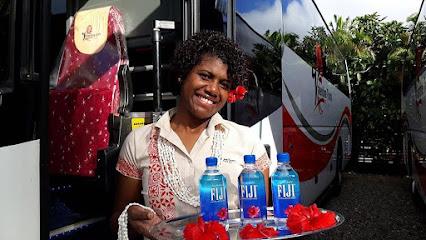
Whale's Tale Cruises Fiji
Explore Fiji's island paradise from Denarau Marina, the premier gateway to the Mamanuca and Yasawa Islands.
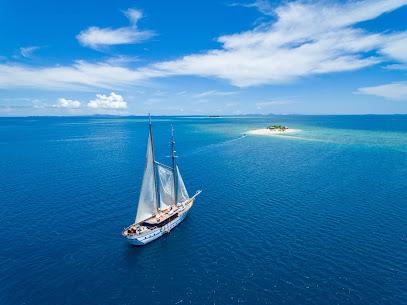
Tivua Island
Escape to Tivua Island: A private Fijian paradise with pristine beaches, vibrant coral reefs, and authentic cultural experiences.
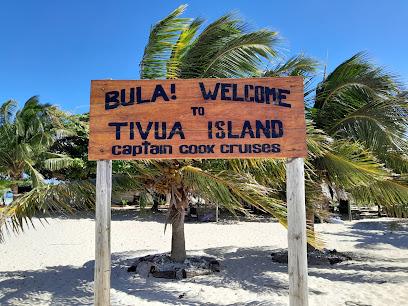
Essential places to dine
Damodar City
Explore Damodar City in Suva: A vibrant shopping haven with diverse retail options, delicious dining experiences, and captivating entertainment.
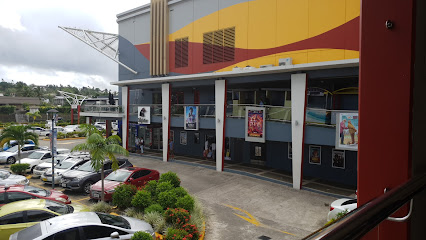
Colo-I-Suva Forest Park
Explore Colo-I-Suva Forest Park: A Lush National Park in Fiji Offering Scenic Trails, Waterfalls, and Unique Wildlife Experiences.
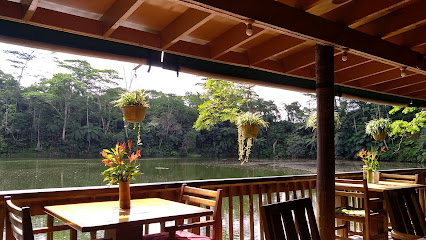
MHCC
Discover shopping bliss at MHCC Shopping Mall in Suva—your gateway to Fijian culture with diverse shops and delicious dining options.
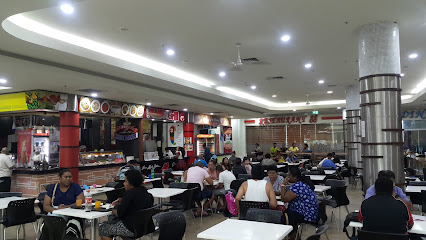
TappooCity Suva
Explore TappooCity Suva: A vibrant shopping destination in Fiji offering diverse stores, delicious dining options, and cultural experiences.
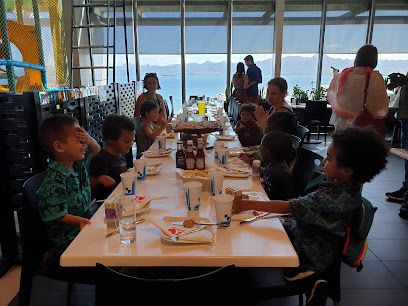
Albert Park
Experience tranquility at Albert Park in Suva – a serene escape filled with lush landscapes and rich cultural heritage.
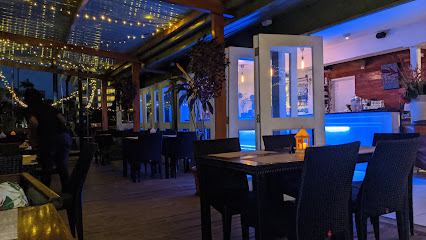
Nadi International Airport
Discover Fiji's breathtaking beauty from Nadi International Airport – your first step into paradise with vibrant culture and warm hospitality.
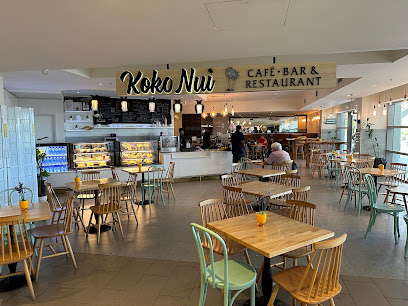
Village 6 Cinemas
Discover cinematic magic at Village 6 Cinemas in Suva - where blockbuster hits meet local charm in a vibrant atmosphere.
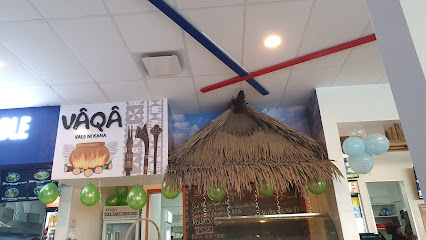
Extra Supermarket - Flagstaff
Discover local flavors at Extra Supermarket - Flagstaff's premier grocery store offering fresh produce and unique Fijian snacks.
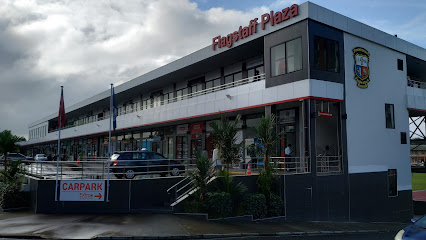
MH Superfresh
Explore diverse shops and delicious dining at MH Superfresh in Suva – your gateway to Fijian culture and retail therapy.
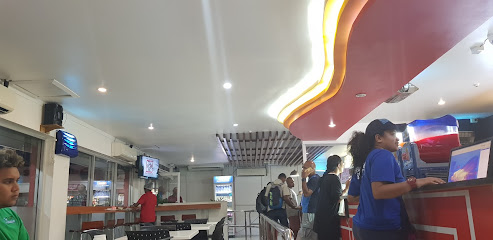
Life Cinema
Discover cinematic adventures at Life Cinema in Nasinu - where entertainment meets relaxation in the heart of Fiji.
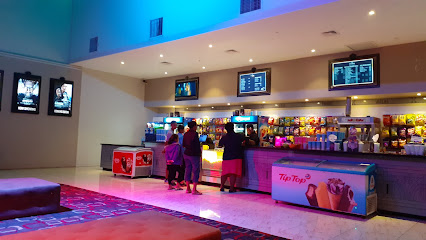
EXTRA SUPERMARKET LAUCALA BEACH
Explore a world of flavors at EXTRA SUPERMARKET LAUCALA BEACH – your ultimate shopping destination in Fiji!
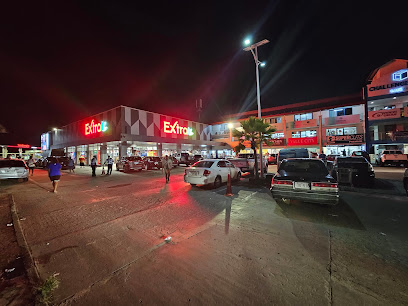
NEWWORLD
Experience the best of Fijian flavors at NEWWORLD Supermarket in Suva – your one-stop shop for local and international products.
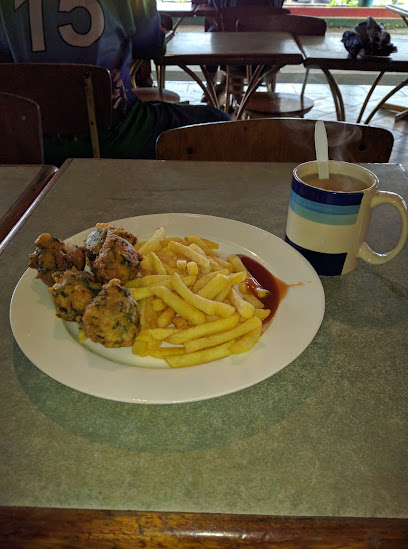
Maya Dhaba
Experience authentic Indian flavors at Maya Dhaba in Suva – where every dish tells a story of tradition and taste.
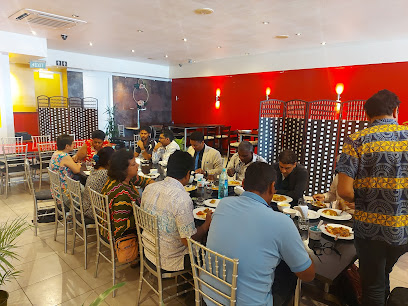
CJS Supermarket
Discover the best of Fijian flavors and global brands at CJS Supermarket - your one-stop shopping destination in Suva.
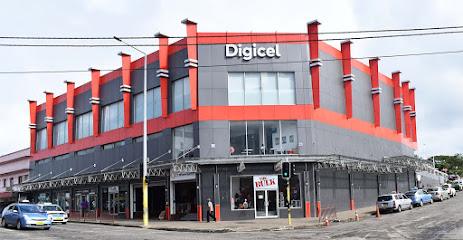
Rainforest Eco Lodge
Experience unparalleled tranquility at Rainforest Eco Lodge, surrounded by stunning landscapes and abundant wildlife in Fiji's enchanting Colo-I-Suva Forest Park.
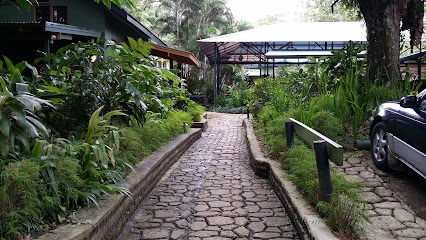
Markets, malls and hidden boutiques
TappooCity Suva
Experience the vibrant shopping culture of Suva at TappooCity, Fiji's premier destination for shopping, dining, and entertainment.
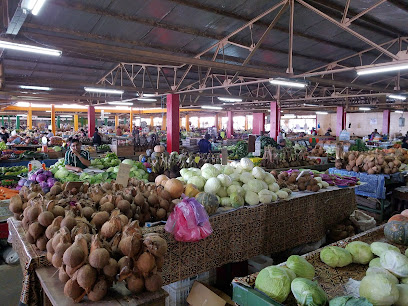
Vinod Patel Centerpoint
Discover the heart of Fiji's DIY culture at Vinod Patel Centerpoint, a hardware store offering unmatched variety and quality for all your building needs.
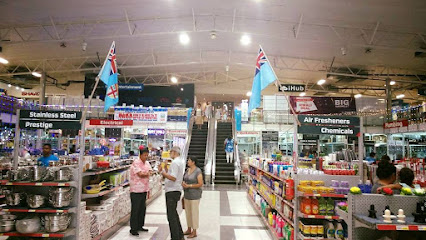
Shop N Save Supermarket - Nabua
Discover the vibrant local shopping experience at Shop N Save Supermarket in Nabua, Suva - your one-stop destination for fresh produce and local goods.
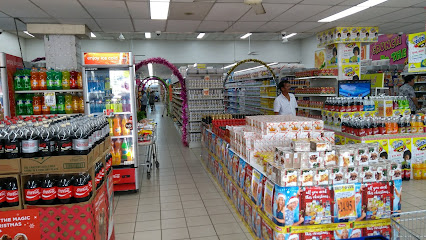
EXTRA SUPERMARKET LAUCALA BEACH
Discover the heart of Fijian culture at EXTRA Supermarket, where fresh produce and local delicacies await every traveler.
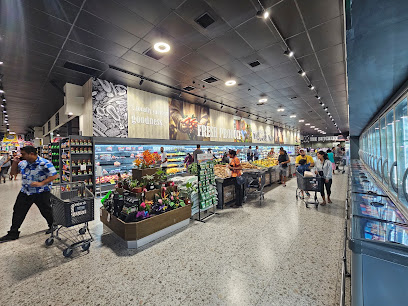
NEWWORLD
Explore the vibrant flavors of Fiji at NEWWORLD Supermarket in Suva, where local and international products come together.
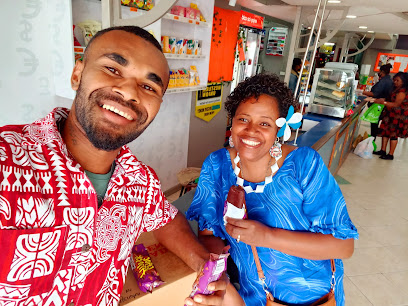
Courts Mega Samabula
Discover unique home goods and Fijian craftsmanship at Courts Mega Samabula, your ultimate shopping destination in Suva.
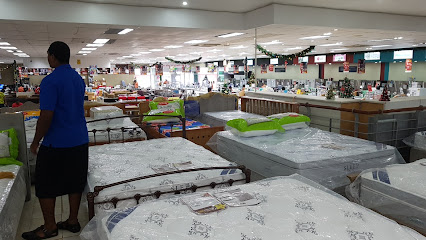
CJS Supermarket
Discover the vibrant shopping experience at CJS Supermarket in Suva, where local flavors meet global brands for an unforgettable visit.
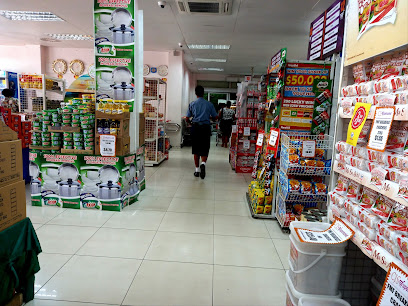
Lotus Foreign Exchange - Lautoka Branch
Lotus Foreign Exchange in Lautoka offers competitive currency exchange services within the vibrant Sugar City Mall for all your travel needs.
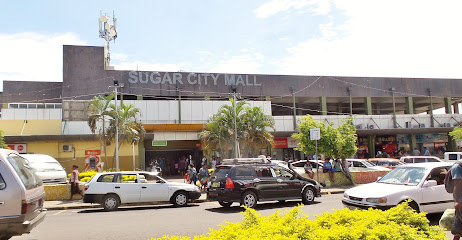
Rups Big Bear Raiwaqa
Discover the vibrant shopping experience at Rups Big Bear Raiwaqa in Suva, Fiji, offering clothing, furniture, and more under one roof.
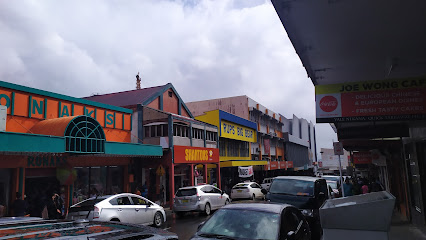
Vinod Patel & Co. Ltd
Discover the essential hardware supplies at Vinod Patel & Co. Ltd in Lautoka, Fiji—where quality meets local charm.
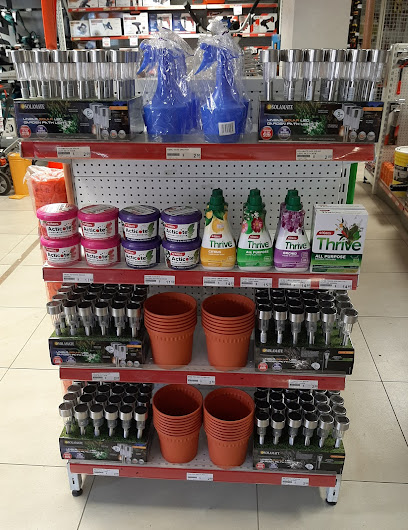
Vinod Patel & Company Ltd, (Suva City Branch)
Discover Suva's premier hardware store, featuring quality tools and materials for every project and a taste of local craftsmanship.
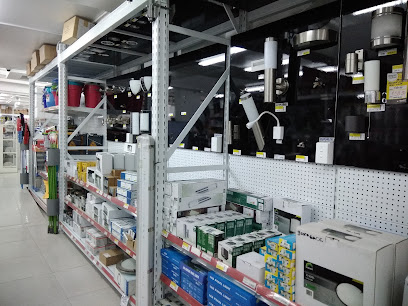
Kasabias Ltd
Discover Kasabias Ltd in Suva, Fiji, your one-stop destination for all building materials, tools, and electrical supplies.
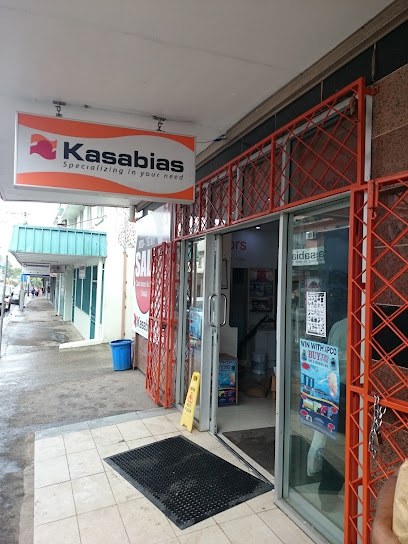
HBTech PTe Limited - Suva
Explore the latest in technology and electronics at HBTech PTe Limited in Suva, a must-visit destination for tech lovers.
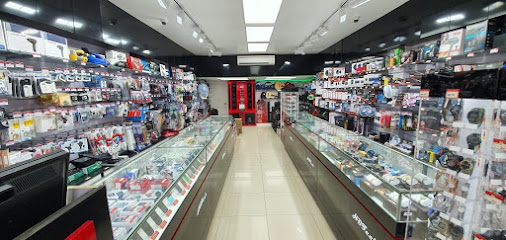
S Nagindas Renwick
Explore men's fashion at S Nagindas Renwick in Suva, Fiji, where style meets quality in an unforgettable shopping experience.
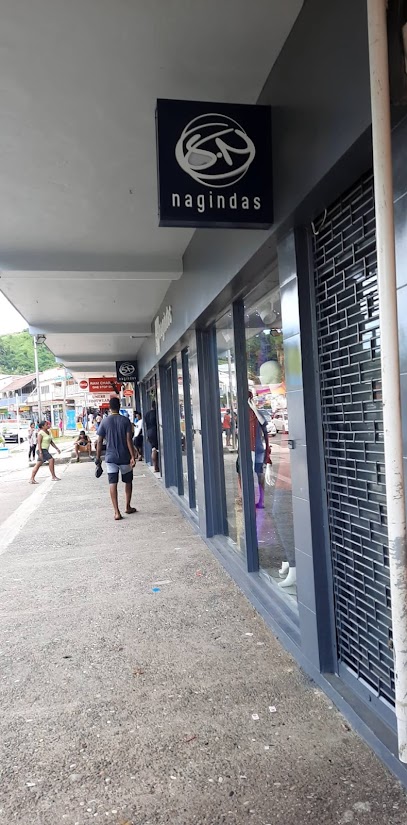
Vinod Patel Co Ltd. Nausori
Explore Vinod Patel Co Ltd. in Nausori for unique hardware solutions, tools, and materials, perfect for all your DIY projects in vibrant Fiji.
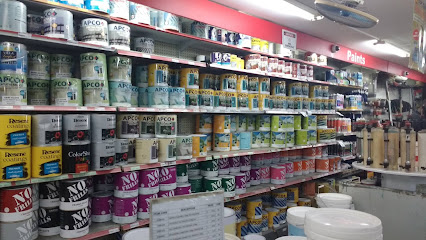
Local Phrases
-
- HelloBula
[boo-lah] - GoodbyeMoce
[moh-they] - YesIo
[yo] - NoSega
[seh-ngah] - Please/You're welcomeVinaka
[vee-nah-kah] - Thank youVinaka vakalevu
[vee-nah-kah vah-kah-lay-vu] - Excuse me/SorryBula vinaka
[boo-lah vee-nah-kah] - How are you?O cei?
[oh they] - Fine. And you?Vinaka. Iko?
[vee-nah-kah. ee-koh] - Do you speak English?Vosoti i bula vakaviti?
[vo-soh-thee ee boo-lah vah-kah-vee-thee] - I don't understandAu sega ni kila
[ow sehn-gah nee kee-lah]
- HelloBula
-
- I'd like to see the menu, pleaseAu vinakata me raici na menu, vakalevu
[ow vee-nah-kah-tah meh rah-thee-thee nah men-oo, vah-kah-lay-vu] - I don't eat meatAu sega ni kana qito
[ow sehn-gah nee kah-nah ng-ghee-toh] - Cheers!Taki!
[tah-kee] - I would like to pay, pleaseAu vinakata me vola, vakalevu
[ow vee-nah-kah-tah meh voh-lah, vah-kah-lay-vu]
- I'd like to see the menu, pleaseAu vinakata me raici na menu, vakalevu
-
- Help!Veivuke!
[vey-voo-kay] - Go away!Lako tani!
[lah-koh tah-nee] - Call the Police!Qito mai na Police!
[ng-ghee-toh my nah poh-lee-they] - Call a doctor!Qito mai na doke!
[ng-ghee-toh my nah doh-kay] - I'm lostAu sesewa
[ow sehn-gah-the-wah] - I'm illAu rarawa
[ow rah-rah-wah]
- Help!Veivuke!
-
- I'd like to buy...Au vinakata me vola...
[ow vee-nah-kah-tah meh voh-lah...] - I'm just lookingAu tiko ga ni raici
[ow tee-koh ng-gah nee rah-thee] - How much is it?E vica na ka levu?
[eh vee-thah nah kah lay-voo] - That's too expensiveSa levu sara
[sah lay-voo sah-rah] - Can you lower the price?Vosoti me vakalevutaka na ka?
[vo-soh-thee meh vah-kah-lay-voo-tah-kah nah kah?]
- I'd like to buy...Au vinakata me vola...
-
- What time is it?Na vei gauna?
[nah vay ng-gah-oo-nah] - It's one o'clockE dua na siga
[eh ndoo-ah nah see-ngah] - Half past (10)E le rua na ka
[eh lay roo-ah nah kah] - MorningVaivai
[vah-ee-vah-ee] - AfternoonVakarau
[vah-kah-rah-oo] - EveningYaloyalo
[yah-loh-yah-loh] - YesterdayNakua
[nah-koo-ah] - TodayNida
[nee-dah] - TomorrowNaudua
[now-ndoo-ah] - 1Dua
[ndoo-ah] - 2Rua
[roo-ah] - 3Tolu
[toh-loo] - 4Va
[vah] - 5Lima
[lee-mah] - 6Ono
[oh-no] - 7Vitu
[vee-too] - 8Waluse
[wah-loo-seh] - 9Ciwa
[thi-wah] - 10Tini
[tee-nee]
- What time is it?Na vei gauna?
-
- Where's a/the...?Evei na...
[eh-veh-ee nah] - What's the address?Na veivosoti?
[nah vay-vo-soh-thee] - Can you show me (on the map)?Vosoti me vakaraitaka?
[vo-soh-thee meh vah-kah-rah-ee-tah-kah] - When's the next (bus)?E na gauna na mataka?
[eh nah ng-gah-oo-nah nah mah-tah-kah] - A ticket (to ....)E dua na tiketi (ki ...)
[eh ndoo-ah nah tee-keh-thee kee]
- Where's a/the...?Evei na...
History of Labasa
-
Labasa, located on the northern island of Vanua Levu, is steeped in the rich culture of the indigenous Fijian people. The iTaukei, or native Fijians, are believed to have settled in the area thousands of years ago. They developed a complex society based on clan and tribal affiliations, with intricate traditions, myths, and communal living. The lush landscapes and abundant resources of Labasa provided a fertile ground for these early communities to thrive.
-
Labasa's modern history began in the late 19th century with the arrival of European settlers and the establishment of sugarcane plantations. The Colonial Sugar Refining Company (CSR) set up operations in the region in 1894, transforming the local economy and landscape. This era saw the importation of indentured laborers from India to work on the plantations, leading to a significant demographic shift and the introduction of Indo-Fijian culture to Labasa.
-
Between 1879 and 1916, thousands of Indian laborers, known as Girmitiyas, were brought to Fiji under the indenture system to work on the sugarcane plantations. Labasa became one of the primary centers for this labor force. Despite harsh working conditions and cultural dislocation, the Indo-Fijians eventually established a vibrant community in Labasa, contributing to its cultural mosaic through the introduction of Indian cuisine, festivals, and religious practices.
-
After Fiji gained independence from British colonial rule in 1970, Labasa continued to grow and develop. The town became an important hub for the sugar industry, with the Labasa Sugar Mill playing a key role in the local economy. Efforts were made to improve infrastructure, education, and healthcare, leading to an enhanced quality of life for its residents. The post-independence era also saw increased political and social integration between the indigenous Fijian and Indo-Fijian communities.
-
Labasa is renowned for its diverse cultural celebrations, reflecting its multi-ethnic heritage. The annual Hibiscus Festival, Diwali, and Holi are just a few of the vibrant events that attract locals and visitors alike. Traditional Fijian ceremonies, such as the meke dance and yaqona (kava) drinking, coexist with Indian religious festivals and rituals, creating a unique cultural tapestry that is distinctly Labasa.
-
Today, Labasa is a bustling town that harmoniously blends tradition with modernity. The sugar industry remains a cornerstone of the local economy, but there has been diversification into other sectors such as tourism, retail, and services. The town's markets, temples, and mosques offer glimpses into its rich cultural heritage, while new developments and infrastructure projects signal its ongoing growth and progress. Labasa stands as a testament to Fiji's complex history and the resilience of its people.
Labasa Essentials
-
Labasa is located on the island of Vanua Levu in Fiji. The most convenient way to reach Labasa is by air. Labasa Airport (LBS) has regular flights from Nadi International Airport (NAN) and Suva's Nausori Airport (SUV). Upon arrival in Nadi or Suva, you can book a domestic flight to Labasa, which takes approximately one hour. Alternatively, you can take a ferry from Viti Levu to Vanua Levu followed by a bus or taxi to Labasa, but this option is more time-consuming.
-
Labasa is a small town, and many of its attractions are within walking distance. For longer trips, local taxis are readily available and relatively inexpensive. Buses operate within the town and to nearby villages. If you prefer more flexibility, car rentals are available, but it's advisable to book in advance. For a more local experience, try traveling by minibus, known as 'vans,' which are a common mode of transport among locals.
-
The official currency in Fiji is the Fijian Dollar (FJD). Credit cards are accepted in most hotels, restaurants, and larger shops in Labasa, but it's advisable to carry cash, especially when visiting smaller establishments and rural areas. ATMs are available in Labasa, but ensure you have enough cash as some remote areas may not have ATM facilities. Currency exchange services are also available at banks and some hotels.
-
Labasa is generally a safe destination for tourists. However, like any travel destination, it is advisable to take standard precautions. Avoid walking alone at night in unfamiliar areas and keep an eye on your belongings in crowded places. While there are no specific high-crime areas targeting tourists, staying vigilant and aware of your surroundings is always wise. Petty theft can occur, so it’s best to secure your valuables.
-
In case of emergency, dial 911 for immediate assistance. Labasa has a local police station and medical facilities available. The Labasa Hospital is the main healthcare provider in the area. It is recommended to have travel insurance that covers medical emergencies. For minor health issues, there are pharmacies in the town where you can purchase over-the-counter medications.
-
Fashion: Do dress modestly, especially when visiting villages and religious sites. Avoid wearing overly revealing clothing. Religion: Do respect local customs and traditions. Remove your shoes before entering someone's home or a place of worship. Public Transport: Do be respectful and give up your seat to elderly passengers. Don't eat or drink on public transport. Greetings: Do greet people with a smile and a handshake. A slight bow of the head is also a sign of respect. Eating & Drinking: Do try local delicacies and accept food offerings graciously. Don't refuse hospitality, as it is considered impolite.
-
To experience Labasa like a local, visit the local markets where you can buy fresh produce and traditional Fijian goods. Engage with locals, who are often friendly and willing to share stories about the town's history and culture. Don't miss visiting the Labasa Sugar Mill if you get a chance, as it is a significant part of the town's economy. For a unique experience, attend a local festival or event to immerse yourself in the rich cultural heritage of the area.
Nearby Cities to Labasa
-
Things To Do in Ba
-
Things To Do in Lautoka
-
Things To Do in Nadi
-
Things To Do in Savusavu
-
Things To Do in Sigatoka
-
Things To Do in Rakiraki
-
Things To Do in Suva
-
Things To Do in Nausori
-
Things To Do in Levuka
-
Things To Do in Kolovai
-
Things To Do in Vava'u
-
Things To Do in Ha'apai
-
Things To Do in Nuku'alofa
-
Things To Do in Pangai
-
Things To Do in Foa

